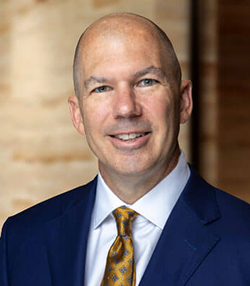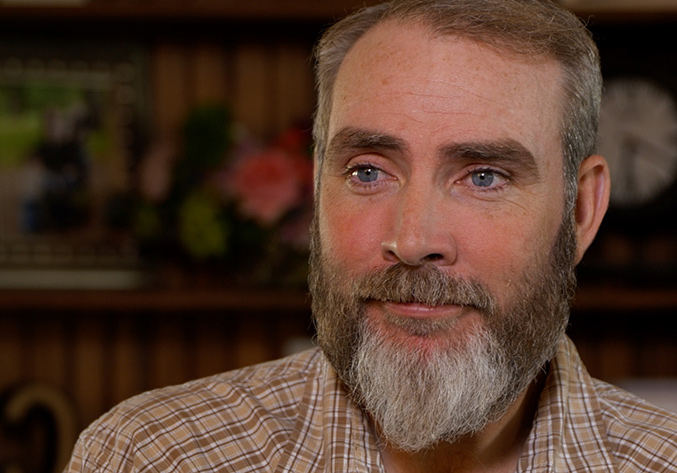FREE CONSULTATION: 214.522.9404

Experienced Personal Injury Attorneys Advocating for You
As one of the largest metropolitan areas in Texas, the Dallas-Fort Worth metroplex has plenty of outdoor adventure ziplining locations for thrill seekers. From family-friendly centers like Sky Ranch to the Go Ape Zipline Adventure Park, which has several courses for the veteran zipliner, there are options for everyone. But most people don’t expect a day of exhilarating ziplining to end with a call to one of the Dallas zipline accident lawyers at Crain Brogdon, LLP.
Before you get the GoPro camera ready, it’s important to know the risks of ziplining, common injuries that can occur, and what to do if the unthinkable happens and you or one of your family members gets hurt.
If you’ve been injured in an avoidable zipline accident, you deserve vigorous representation to protect your rights. Contact us today at 214-522-9404 to speak with a Dallas zipline accident lawyer about your case.
Why Choose Crain Brogdon, LLP Catastrophic Injury Attorneys?
Over $355 Million in Settlement Awards for Our Clients
Since 2001, Crain Brogdon, LLP, zipline injury lawyers have represented families in the metroplex who have been injured at one of the city’s ziplining facilities. The focus of Crain Brogdon, LLP is helping the victims of catastrophic accidents and their families by using the legal system to secure financial justice for their losses and injuries. Our legal team has secured multiple seven-figure verdicts for accident victims and their families after life-altering injuries or wrongful deaths. We advocate solely for your needs and hold the parties that caused the accident accountable.
If you’ve been hurt and you shouldn’t have been — we can help. An experienced zipline injury lawyer will diligently explore your legal options.
Common Causes of Zipline Accidents at Dallas Theme Parks and Recreation Areas
Broken bones, concussions, brain injuries, and internal organ damage are common types of ziplining accident injuries. Sometimes, a design defect in the course can cause an injury, including pinching and deep bruising or lacerations from the harness. Other times, the equipment on the course itself may be flawed or faulty, with defects stemming from the manufacturing of the equipment.
Finding the cause or causes of your accident is the first step your zipline accident lawyer will take. As your Dallas zipline accident lawyer, we look for all parties contributing to your injuries. Common zipline accident causes can include:
- Negligent operation: Zipline owners should ensure that all employees are highly trained, that riders wear the gear correctly, and that regular safety inspections and preventive maintenance occur.
- Malfunctioning brakes: Collisions can happen if the rider cannot control the speed of their descent due to defective braking gear.
- Improperly constructed zipline courses: The course must be constructed with a focus on keeping riders safe.
Safety equipment is critical for a zipline course, and the facility and employees need to consider a few factors to ensure that each rider is wearing the right gear. These factors include:
- The rider’s age
- The rider’s weight and height
- The kind of course they will be riding (descent decline, etc.).
A rider wearing improper safety gear can get seriously hurt, and a defective course can be just as unsafe for riders. Tragically, sometimes riders do not survive a serious zipline accident.
According to our Texas premises liability laws, zipline companies must ensure that the courses and attractions are safe for visitors to use as intended. Visitors harmed because a zipline facility violated their duty of care for visitor safety may have legal recourse to seek compensatory damages for their injuries.
Call us today at 214-522-9404 for a free consultation with a ziplining accident lawyer at Crain Brogdon, LLP.
Are Ziplining Facilities Safe?
Most DFW zipline courses are relatively safe and not defective, and the chance of a zipline’s breaking, according to the Association for Challenge Course Technology (ACCT), is one in a billion. But human error can significantly increase the chances of catastrophic injuries on a zipline course. Accidents on ziplines have been on the rise, mainly due to errors with creating the course or ensuring that riders are safe while using it.
Furthermore, the ziplining industry is federally unregulated, so states are left to set their own limits for ziplines. In fact, zipline operator safety is largely volunteer-based — not all operators take the same safety measures or employ the same safety inspection and maintenance standards.
Many people going ziplining may not realize this, but the burden to ensure they are safe could rest on the rider, who may not know much about ziplining security. To increase your chances of avoiding a dangerous accident, make sure to:
- Diligently follow all safety instructions from the operators and posted signage.
- Check the Better Business Bureau report for the facility you wish to visit, with an eye toward safety complaints.
- Learn about staff training by asking the zipline management company about how the park meets industry standards for safety.
- Request inspection reports of the facility or rides; operators unable to produce reports may not be inspecting the rides as often as they should.
Trust your instincts — if you arrive at the course and the employees seem lackadaisical about safety, if the equipment seems damaged in some way, or if the courses look run-down or poorly maintained, don’t stay there and risk zipline injuries.
Who Is Responsible for Zipline Injuries?
It can be easy to assume that the zipline rider is responsible for their own injury, whether by acting unsafely or by not following safety regulations. In fact, zipline facilities rely on visitors’ believing this, especially since most facilities require a waiver before riding the courses. This is part of the reason these cases are so difficult to litigate. Working with a ziplining accident lawyer who understands the challenges of these cases is crucial.
Establishing liability and negligence in a zipline accident can be tricky — the park management company will often hide behind the liability waiver and claim the victim is solely responsible for the accident. But you still have the right to file a claim for your injuries. Theme parks and ziplines are responsible for providing a safe environment for riders.
Some of the parties that could be responsible for your accident include:
- The facility owner or property manager
- The employees and zipline operators
- The designer of the zipline course
- The manufacturer of the zipline materials and safety gear
- The construction company that built the park
- Other riders who were engaging in unsafe behavior.
Your injuries may have been caused by multiple parties. For example, the manufacturer may have released unsafe equipment on the market, but the park manager also has a responsibility to inspect the equipment for safety. They may have easily noted the defects if they had been doing due diligence. It’s the job of your Dallas zipline accident lawyer to investigate the accident and ensure all responsible parties are held accountable.
Frequently Asked Questions About Lawsuits for Zipline Injuries
After an accident and injury on a zipline course, you probably have a lot of questions about the legal process to follow. Your Crain Brogdon, LLP zipline injury lawyer will answer questions specific to your case at your initial consultation.
If the zipline facility offered me a check for my injuries, do I still need a ziplining accident lawyer?
If you want to ensure that your settlement covers your injuries after the accident and any subsequent rehabilitative treatment or surgery you may require for a full recovery, then having an experienced personal injury lawyer represent your claim gives you the best chance of doing so.
How much do personal injury attorneys cost?
At Crain Brogdon, LLP, our lawyer fees are assessed on a contingency basis, a percentage of your final award. So if we do not win your case, you don’t pay!
I signed a waiver at the zipline facility. Does this mean I cannot file a lawsuit?
In Texas, even if you were partly to blame for the accident, you can file a personal injury lawsuit for compensatory damages. Signing a waiver does not absolve the theme park of responsibility to ensure safe zipline courses, well-trained employees, and properly working safety gear.
How much is my zipline accident claim worth?
Placing a dollar value on your claim can be tricky, but as a general rule of thumb, the worse your injuries and the lower the chances you’ll make a full recovery, the higher your final settlement will be. This takes into account compensating you for a diminished quality of life or permanently reduced physical capabilities, such as partial paralysis or chronic pain.
Some people may not be able to earn a living doing the job they did before the accident and so deserve compensation for the loss of earning capacity.
Finally, there is a question of punitive damages. If we determine that the zipline park owner or equipment manufacturer acted especially egregiously and knowingly allowed unsafe equipment to be used, then we may ask for punitive damages against the company.
Punitive damages are a form of economic punishment for parties that act with reckless disregard for the safety of others. They aren’t assessed in every case but are used when a judge wants to set an example for other companies in the industry or because a company acted with extreme negligence.
How long do I have to file a ziplining injury lawsuit in Texas?
The statute of limitations for a personal injury claim in Texas is two years from the date you were injured. The timeline starts on the date it happened — if you don’t file suit before it expires, you’ve lost your chance to claim compensatory damages no matter how strong the facts of your case are. Hire a lawyer as soon as possible after your accident so you won’t miss out on the compensation you deserve.
The theme park’s insurance company called me to ask about the accident. What should I say?
Nothing! The insurance adjuster is not on your side and is probably looking for any reason to deny or minimize your claim. Anything you say may be used in their defense if your case goes to trial. When you work with Crain Brogdon, LLP for your injury claim, you don’t have to worry about what to say when the insurance company calls — simply refer them to us. We handle all communications with the other party on your behalf, and we have years of experience with the tricks that insurance companies may use to deny our clients’ rightful claims.
My loved one died after a zipline accident in Dallas. Do I have any legal options?
Yes, certain family members can file a wrongful death lawsuit against any party responsible for the accident that caused a death. The parties responsible for the death of your family member are often the ones that would have been named in a personal injury suit. In fact, that’s the contingency for a wrongful death case — that a victim who had survived their injuries would have the legal grounds to file a similar personal injury case.
We know that no amount of money can replace your loved one, but the financial settlement you receive after their death can help ease the financial struggles you may be experiencing.
You probably have many more questions about your case, so we encourage you to call Crain Brogdon, LLP today to schedule your free consultation with one of our personal injury lawyers.
Have You or a Loved One Been Injured on a Zipline in DFW?
Contact Crain Brogdon, LLP, Dallas Zipline Accident Lawyers
If you or a loved one has been injured at a Dallas-Fort Worth ziplining facility, our legal team can help you. Crain Brogdon, LLP personal injury legal team advocates on your behalf, holding negligent zipline owners responsible for their actions.
Contact us today at 214-522-9404 for a free case consultation.

Attorney Robert D. Crain
Robert D. Crain is a nationally renowned personal injury attorney who has been included in lists such as U.S. News’ Best Lawyers in America. Additional publications often include Rob on their “Best Lawyers” lists, including Texas Monthly and D Magazine. As a testament to his excellence, he is AV® Rated by Martindale-Hubbell. [ Attorney Bio ]






